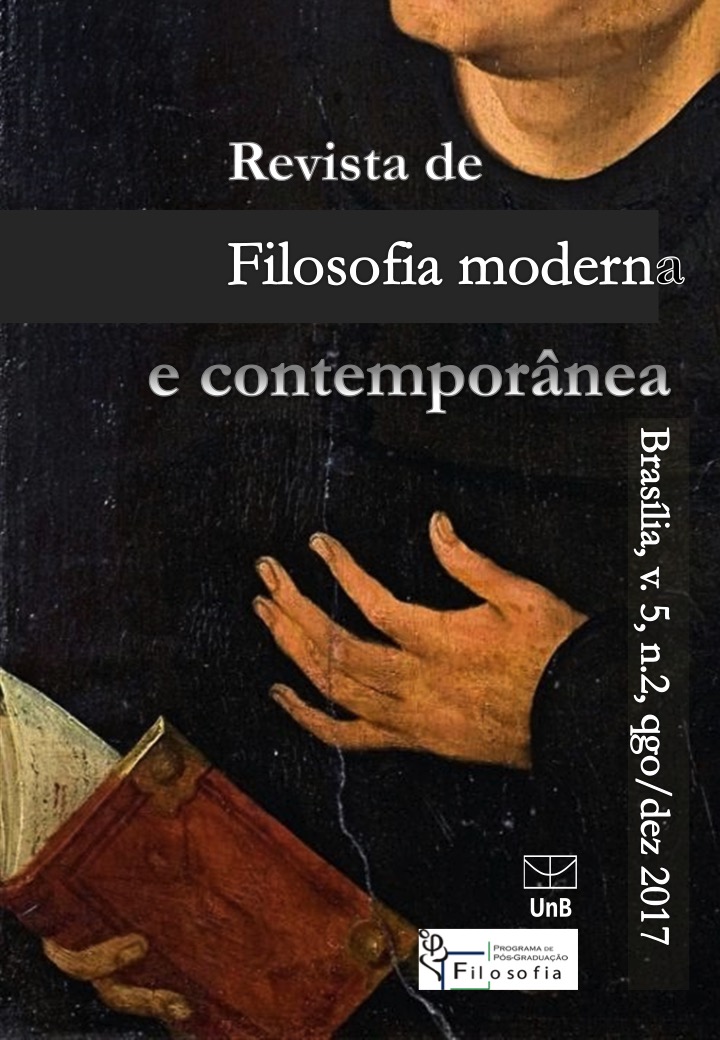Luther and the theological criticism to the traditional philosophical definition of man: a reading of the threefirst theses of the Disputatio de Homine (1536)
DOI:
https://doi.org/10.26512/rfmc.v5i2.12587Keywords:
Luther, Aristotle, Man, Animality, Immortality of the soulAbstract
This article aims to expose and comment the theological critique of Luther of the philosophical definition of man in the first three theses of Disputatio de homine (1536). At the outset, it presents the historical provenance of the definition of man as a "rational animal". Then indicates its assumption in the Christian theological tradition. Third, it points out that this definition was also subjacent to the conception of man in the Renaissance. Posteriorly, it exposes and comments the first three theses of the Disputatio. Thesis 1 presents the way in which philosophy defines man. At its bottom is the horizon of the "Porphyry Tree" and the problem of the plurality of forms. Thesis 2 refers negatively to the question of man’s animality. Thesis 3 emphasizes its mortality and touches the question of the immortality of the soul.
Downloads
Downloads
Published
How to Cite
Issue
Section
License
Copyright for articles published in this journal is retained by the authors, with first publication rights granted to the journal. By virtue of their appearance in this open access journal, articles are free to use, with proper attribution, in educational and other non-commercial settings.


